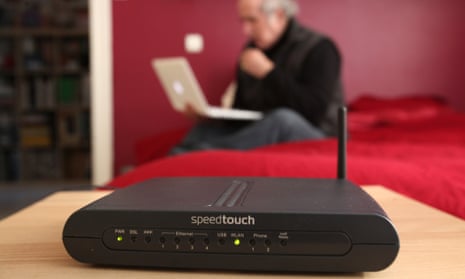You may have seen in the Daily Mail on Monday (well, you MAY read the Daily Mail, who am I to judge?) the headline "What’s wifi doing to us? Experiment finds that shrubs die when placed next to wireless routers".
Really? This is a bit worrying if so. What shrubs? Well, read a bit further down and the answer may surprise you: cress. I didn’t realise cress was a shrub, but you live and learn eh?
Apparently the researchers (some 15-year-old schoolchildren, in a classroom experiment in Denmark), decided to run the experiment after noticing they had trouble concentrating the morning after sleeping close to their mobile phones.
Quite why wi-fi got blamed for this, I’m not wholly sure, since the wi-fi in their rooms is unlikely to change depending on how close they are to their phones, but anyway, on we go.
Details about what they actually did are sketchy, but what’s been reported is that they put six trays of cress in a room near a wi-fi router, and six trays in a different room without a router. Then they reported what had happened to the cress 12 days later.
This article mentions that the rooms had equivalent light and the seeds were given equal amounts of water, which is great, but it’s unlikely that these students would have had the resources to truly monitor that conditions were equivalent in each room.
I think it’s unkind of me to criticise the experiment too much though. After all, this was a classroom study, and as such is frankly a great design, for that environment. But that certain mainstream media have leapt on this to scaremonger that wi-fi might be damaging our brain is nonsense. This experiment is not controlled enough to give us any evidence for that (and also, I’m not quite sure how similar human brains are to cress anyway).
The suggestion by scientists interviewed about the research is that routers give out heat, and this probably dried out the cress in the rooms with the routers in, so equivalent water was not enough for them.
As for why the girls might struggle to concentrate the day after sleeping with their mobile phones on their bedside, perhaps the lure of late-night Facebook sessions or internet procrastination means they sleep less well? There have been suggestions that the light from mobile phones or tablets just before bed can disrupt sleep patterns, although again there’s not really any strong evidence for this.
Mobile phones, wi-fi and the like are going to cause controversy; almost all new technology does. But wi-fi signals are not strong, you would have to go around with a router strapped to your head for extended lengths of time to be exposed to any meaningful level of electromagnetic radiation.
One thing I’d like to say though to the young women who conducted this experiment, is PLEASE don’t listen to people like me writing critiques of your experiment! I am not criticising what you did at all, because I think it’s great. What I think is dangerous and unhelpful is the media reporting schoolroom science in the same style as well-controlled peer-reviewed research, and claiming it provides the same strength of evidence.
I completely agree with this quote from Olle Johansson at the Karolinska Institute (taken from this article):
The girls stayed within the scope of their knowledge, skilfully implemented and developed a very elegant experiment … I sincerely hope that they spend their future professional life in researching, because I definitely think they have a natural aptitude for it.

Comments (…)
Sign in or create your Guardian account to join the discussion